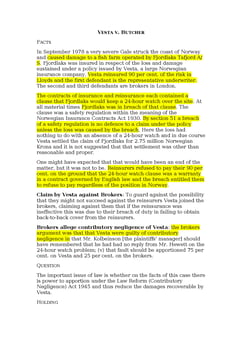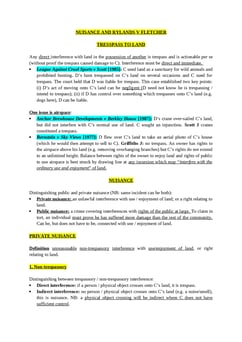Manchester Building Society v Grant Thornton LLP [2021] UKSC 20
By Oxbridge Law TeamUpdated 04/01/2024 07:17
Reviewed ByOxbridge Law Team
Judgement for the case Manchester Building Society v Grant Thornton LLP
Table Of Contents
KEY POINTS
- The rigid categorization of "advice" and "information" as distinct concepts in the SAAMCO case should not be considered as an inflexible rule. Instead, the key emphasis should be on determining the purpose behind the duty of care taken on by the defendant.
- The SAAMCO counterfactual, which examines whether the claimant would have incurred the same loss if the defendant's advice had been accurate in an "information" case, serves as a means to verify the outcome derived from analysing the purpose of the duty of care.
FACTS
- Respondent Grant Thornton LLP provided negligent advice to the appellant Manchester Building Society regarding an accounting treatment called "hedge accounting”, suggesting that it could be used to reduce the volatility of the market-to-market (MTM) value of swaps in the Appellant's accounts.
- Relying on this advice, the Appellant entered into fixed-rate mortgages hedged against long-term swaps. Under these arrangements, the Appellant paid a fixed rate but received a variable rate.
- The 2008 global financial crisis resulted in a significant decrease in interest rates. As a consequence, the MTM value of the swaps became negative. The Appellant realised that the Respondent's negligence had led to these losses.
- The Appellant stopped applying hedge accounting, closed out the swaps, and had to pay the MTM losses on the swaps and transaction fees for terminating the swaps prematurely.
COMMENTARY
- The ruling in this case reinforced the importance of examining the nature of the duty assumed by the professional advisor and the specific factual context of the case.
- The decision provides a nuanced approach to applying the SAAMCO principle, highlighting that the focus should be on assessing the scope and purpose of the duty of care rather than relying solely on the categorization of "advice" or "information" cases.
NOTES
- The SAAMCO rule establishes a distinction between "advice" and "information" cases in professional negligence.
- In an "advice" case, where the professional advisor assumes responsibility for the decision-making process, they may be liable for the full loss suffered by the claimant.
- In contrast, in an "information" case, where the professional advisor provides data or information to assist the client in making decisions, their liability is limited to the consequences of providing inaccurate or misleading information.
Any comments or edits about this case? Get in touch
For Further Study on Manchester Building Society v Grant Thornton LLP
Need instant answers? Our AI exam tutor is here to help.
Ask questions 🙋 Get answers 📔 It's simple 👁️👄👁️
Our AI is educated by the highest scoring students across all subjects and schools. Join hundreds of your peers today.
Get StartedSimilar Cases
Related Product Samples
These product samples contain the same concepts we cover in this case.
| Commercial Remedies BCL | Saamco Notes (4 pages) |


 Since 2010, Oxbridge Notes has been a trusted education marketplace, supplying high-quality materials from top achievers at universities like Oxford, Cambridge, LSE, Harvard, and Yale.
Since 2010, Oxbridge Notes has been a trusted education marketplace, supplying high-quality materials from top achievers at universities like Oxford, Cambridge, LSE, Harvard, and Yale.